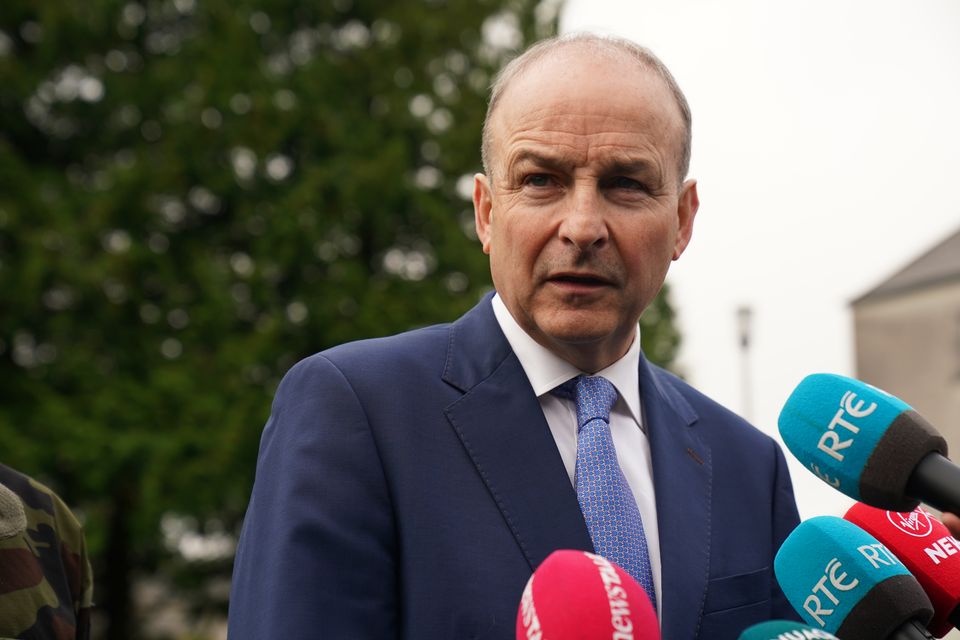The Taoiseach said he will not be “dilly dallying” around after the Finance Bill is passed and will provide clarity as to when the general election will be.
Simon Harris said the Bill, which brings in tax cuts as part of the budget, will be passed in the Dail next week.
A draft Dail schedule shows the Finance Bill passing all stages on Tuesday in around four hours.
The coalition leaders have previously said that it is the main piece of legislation that needs to be passed before an election can be called.
Tanaiste and Minister for Defence, Micheal Martin (Brian Lawless/PA)
“My answer on this is probably boringly consistent at this stage, and my absolute priority here is to pass the Finance Bill and as of now, it looks like that will happen next week,” he told reporters in Co Kildare on Thursday.
“It’s really important that happens.
“I don’t think anyone would appreciate a general election interrupting the reduction of the Universal Social Charge (USC), or the changes to the inheritance tax or the other things we’ve just discussed that are in in the Finance Bill.
“Once the Finance Bill passes, I will move swiftly in terms of providing people with clarity as to when the general election will be.
“I don’t want to take the work of the Oireachtas for granted, and you know the Oireachtas does have to debate and consider the Finance Bill. When that is concluded, I won’t be dilly dallying around in terms of providing people with clarity on when the general election will take place.”
Meanwhile, Tanaiste Micheal Martin said his party is aiming to return to the Dail with more seats than any other party.
Mr Martin, however, refused to say whether he would be agreeable to another term of a rotating taoiseach in a coalition government.
“I don’t take any of the predictive approaches that some commentators may have in respect of outcomes in the next election,” he added.
“It’s very, very foolish for any party leader to be talking in terms of what would happen in the immediate aftermath of a general election, it will depend on how well each individual party does.
“The fundamental will be the programme for government, the fundamental will be the policies, that ultimately is the glue that holds a future government together.
“If we can get, after the election, policies aligned, people agreeing on the same policies, it’s prioritisation of housing, investment in health, helping to cushion people against the cost of living.
“There’s two aspects to this, there is the policy aspect, there is the number of parties that could potentially be in any future coalition government, and there has to be parity of esteem and it has to be a collective approach to government.
“We are aiming to be the largest party coming out of this general election, and we have a stronger team now in the field in every constituency across the country than we would have had in 2020.”
